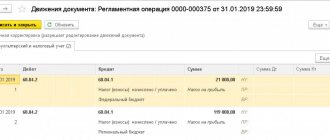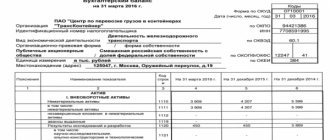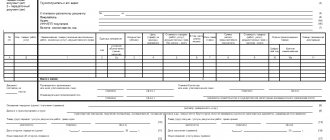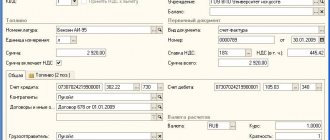Right to use the regime
Not only entrepreneurs, but also organizations have the opportunity to use the UTII system. Article 346.28 of the Tax Code of the Russian Federation provides for a mechanism for companies to switch to a single tax on imputed income. The right is granted when carrying out specific types of commercial activities. The list of directions is given in Art. 346.26 of the Code.
A characteristic feature of the regime is the lack of connection between the amount of tax and actual income. Liabilities are affected by physical indicators (number of employees, area of a retail outlet, number of vehicles), as well as coefficients. The rate is set at 15%, but can be reduced to 7.5% (Article 346.31 of the Tax Code of the Russian Federation).
The following are recognized as mandatory conditions for the transition to the system:
- Publication of a normative act by local authorities. The powers are vested in municipalities, cities of federal significance, and urban districts.
- Compliance with staffing restrictions. The average number of employees during the year should not exceed 100 people.
- Control of the composition of founders. Third-party companies may own no more than 25% of the authorized capital of the LLC. Exceptions are provided only for associations of disabled people.
- Refusal to conduct a specific business. UTII does not apply if the taxpayer leases out automobile gas stations for temporary use.
The system remains inaccessible to participants in agreements on simple partnership and trust management. Organizations recognized as the largest taxpayers cannot apply it either. The ban is also established for medical, educational and social institutions (Article 346.26 of the Tax Code of the Russian Federation).
Requirements for imputed income tax payers are clarified by local authorities. Thus, municipalities have the right to reduce the list of economic areas and approve the K2 coefficient.
The essence of “imputation”
UTII is one of the special tax regimes. Individual entrepreneurs who use it are classified in a separate category. Fiscal policy towards such businessmen is completely different than towards those who work on the “simplified”, general system. The rules for accounting for individual entrepreneurs on UTII in 2020 are also their own.
In addition, not every entrepreneur can choose a UTII. The fact is that his activities should be included in a special list.
The main difference between UTII and the simplified tax system and the general regime is that the amount of income and the corresponding tax are, as it were, imputed to the entrepreneur. Based on the target indicators approved by tax legislation, such businessmen make contributions to the budget. Amounts depend on:
- physical indicators;
- areas of activity;
- region of location.
At the following link you can download the individual entrepreneur’s application for the use of UTII.
“Imputement” involves a number of features related to the payment of taxes. And it also imposes some specific responsibilities on the merchant. Therefore, businessmen often ask the question whether the individual entrepreneur keeps accounting records on UTII.
So: accounting is not the responsibility of individual entrepreneurs working on an “imputed” basis. But there are some nuances. Although, apparently, no changes in this area are expected for 2020.
Accounting Features
The number of employees is one of the criteria for classifying companies as small businesses (Government Decree No. 265 of 04/04/16).
The number limit of 100 people makes the UTII regime accessible to small enterprises. This largely determines the nature of accounting.
The system for recording business transactions has a number of features. If the payer earns no more than 800 million rubles per year, it is built according to a simplified scheme. This right is granted to small businesses, clause 4 of Art. 6 of Law 402-FZ dated 06.12.11. The manager can independently conduct accounting. In addition, the company still has the opportunity to transfer the responsibility for ensuring accounting to a full-time specialist or an outsourcing company.
Setting up the system requires drawing up:
- Accounting policy. The internal regulations of the enterprise establish methods of depreciation of property, rules of document flow, and asset valuation. If necessary, a local act approves the procedure for combining tax regimes. Attached to it are forms designed to record business transactions. The requirements for the accounting policy of the enterprise are fixed by PBU 1/2008 (Order of the Ministry of Finance of Russia No. 106n dated 10/06/08). The rules apply to the extent that they do not conflict with Law 402-FZ.
- Balance sheet and income statement. The nuances of the tax accounting system do not affect the enterprise’s obligation to control actual profits and costs. When applying UTII, obligations to the budget are calculated from the base profitability. Actual revenue is not relevant for the calculation. However, for the purposes of paying dividends, assessing profitability and other needs, information on real indicators is required. A company accountant needs to thoroughly record business transactions and control the movement of funds and valuables. Before preparing the balance sheet, an inventory must be taken. It is impossible to do without registers, primary forms and traditional postings.
The main objective of financial statements is to provide a clear and comprehensive picture of the financial condition of the company. The information must be current as of the date the documents were prepared.
Even with a simplified form, the following will be mandatory:
| Elements of Accounting | a brief description of | Expert recommendations |
| Working chart of accounts | Representatives of small businesses are allowed to abandon the principle of double entry. In information message No. PZ-3/2015, the Russian Ministry of Finance recognized the right of organizations to approve a reduced chart of accounts. In particular, small companies were allowed to combine specific groups in one position. Thus, in the “Profit and Loss” account you can reflect transactions from the categories “Sales”, “Other expenses and income” | When developing the document, you should be guided by the order of the Ministry of Finance of the Russian Federation No. 94n dated October 31, 2000 |
| Registers | In recommendations No. PZ-3/2015, the financial department allowed the replacement of numerous registers with a single book of business transactions. It can be maintained on paper or electronically. The accountant will have to create a set of statements for each account used. Such documents are necessary for management purposes | The option with a single accounting book is recommended if the company has less than 30 households per month. operations. However, the order is not mandatory (clause 4.1 of Information No. PZ-3/2015) |
| Primary forms | The organization has the right to use unified forms or develop its own (clause 4 of article 9 of law 402-FZ) | The requirements for documents reflecting business transactions are the same. Article 9 of Law 402-FZ recognizes as mandatory details: * name; * date of registration; * Company name; * content of the fact; * natural, monetary value; * information about the officials who made the transaction and are responsible for its execution; * signatures. In the absence of its own forms, the company can use unified options (Resolution of the State Statistics Committee of the Russian Federation No. 132 of December 25, 1998) |
The features of simplified accounting for UTII payers include the ability to refuse to revaluate fixed assets, the right to use the cash method, etc. The specifics are not determined by the applied tax regime, but by the company’s belonging to the category of small business.
Since the company is an employer, personnel and personalized accounting become separate areas. In addition, the company will have to regularly submit reports provided for personal income tax agents. The use of UTII does not exempt you from the need to fulfill such requirements.
Accounting for individual entrepreneurs with UTII
The legislation on accounting does not provide for the obligation to maintain accounting records for UTII by private entrepreneurs and citizens engaged in individual practice.
When conducting activities without registering a legal entity, expenses, income and objects for taxation are recorded in the manner approved by tax legislation.
But during a tax audit, documents relating to the activities of the person being audited may be requested. This provision is interconnected with the clause of the Tax Code obliging taxpayers to store accounting and tax documents for four years, including:
- relating to income receipts,
- confirming the fulfillment of expenses,
- necessary for calculating taxes,
- for the transfer or withholding of taxes.
Failure to provide documents or any information provided for by the Tax Code and other legislative acts within the specified period will result in the imposition of penalties.
According to the Tax Code, entrepreneurs working under taxation in the form of UTII are not required to keep track of income and expenses in the course of their activities. But the payer is obliged to take into account the indicators required for tax calculations.
The procedure for verifying electronic signatures is clearly defined by law, and there are a number of established rules that contain 16 provisions.
The validity period of the electronic signature is 365 days. If it has expired and the renewal has not been completed, the owner has another 30 days during which he will be able to renew the old certificate. More details about the validity period of digital signatures can be found in this article.
Therefore, when checking, it will be legal to require documents confirming the legality of using this accounting system and the correctness of tax calculation. These include lease agreements, floor plans, but do not include documents on the amount of income received and expenses incurred.
Balance sheet
The annual report of a legal entity deserves special attention. It will be drawn up in an abbreviated form (Order of the Ministry of Finance of Russia No. 66n dated 07/02/10). Businesses must submit reports in addition to tax returns. Thus, the management of the LLC reports the financial results to the control service. A simplified version suggests:
- inclusion in the document of aggregated indicators without detail;
- reflection of only key information in applications.
The form of the abbreviated balance sheet is given in the fifth appendix to order No. 66n. Its content is limited:
| Assets | Passive |
| Non-current tangible and intangible assets, inventories, money, other means of payment, current assets | Reserves, capital, long-term and short-term loans, other liabilities, accounts payable |
The income statement will have to reflect revenue, other income, basic costs and non-operating costs, interest on the use of funds, as well as taxes. Net profit or loss is subject to separation.
Annual financial statements are submitted to the tax office by March 31 (Clause 1 of Article 23 of the Tax Code of the Russian Federation). An additional copy is sent by the enterprise to the statistical authorities (Article 18 of Law 402-FZ).
What reports need to be generated
The transition to UTII significantly reduces the number of documents submitted to regulatory authorities. The required package includes:
| Name | Characteristic | Deadlines |
| Balance sheet with attached income statement | The features of this document are discussed in detail above. | Annually no later than March 31 (Clause 1 of Article 23 of the Tax Code of the Russian Federation) |
| Certificate of headcount | The form was approved by order of the Federal Tax Service of the Russian Federation No. MM-3-25 / [email protected] dated 03.29.07. Indicators are calculated for the year and submitted to the territorial tax office | Annually until January 20 (Article 80 of the Tax Code of the Russian Federation) |
| Declaration on UTII | The form is given in the appendix to the order of the Federal Tax Service of the Russian Federation No. ММВ-7-3 / [email protected] dated 06.26.18 | Quarterly until the 20th day of the next month (clause 3 of Article 346.32 of the Tax Code of the Russian Federation) |
| Help 2-NDFL | When providing information for 2020, the form approved by order of the tax department No. ММВ-7-11 / [email protected] dated 10/02/2018 is used. If it is impossible to withhold personal income tax from an individual, a corresponding message is sent to the control service | Certificate - annually until April 1, notice of the impossibility of withholding tax - until March 1 (clause 2 of Article 230 of the Tax Code of the Russian Federation) |
| Form 6-NDFL | When drawing up a certificate, you must be guided by the order of the Federal Tax Service of the Russian Federation No. ММВ-7-11 / [email protected] dated 10/14/15 | Quarterly within a month after the end of the reporting period, annual report - before April 1 (clause 2 of article 230 of the Tax Code of the Russian Federation) |
| Calculation of insurance premiums | The document is submitted to the tax office. The calculation is made according to the rules of the Federal Tax Service of the Russian Federation No. ММВ-7-11 / [email protected] dated 10.10.16 | Until the 30th day of the month following the reporting quarter (clause 7 of Article 431 of the Tax Code of the Russian Federation) |
| SZV-STAZH | Information about insured persons is submitted to the territorial office of the Pension Fund of the Russian Federation using the fund's resolution No. 507p dated 12/06/18 (valid from January 2019) | Annually until March 1 (Clause 2 of Article 11 of Law 27-FZ of 04/01/96) |
| SZV-M | Information is transferred to the Pension Fund of the Russian Federation on a form approved by fund resolution No. 83p dated 02/01/16 | Until the 15th day of the next month (clause 2.2 of article 11 of law 27-FZ) |
| Statistical forms | The list of reports submitted to Rosstat is individual. Small businesses are required to submit forms only when included in the sample (Government Decree No. 79 of 02/16/08). The organization is notified in writing of the need to provide information. Micro-enterprises submit a report to the MP, small companies – to the PM. The list of forms is wide. It is mandatory to send only a balance sheet with attachments to the statistical authorities | To establish the obligation to submit forms, experts recommend using the departmental website. In addition, you can clarify the list of reports from employees of the territorial department of Rosstat |
| Report 4-FSS | All organizations send information to the extra-budgetary fund, regardless of the tax regime applied. The form was approved by order of the Federal Social Insurance Fund of Russia No. 381 dated September 26, 2016 | Quarterly in paper form - up to 20, and in electronic format - no later than the 25th day of the month following the reporting period (Article 24 of Law 125-FZ of July 24, 1998) |
In addition, the company’s office must permanently store:
- constituent and registration documents;
- notification of registration as a UTII payer;
- unified book of accounting of business transactions.
In case of suspension of activities, the company submits zero accounting reports. If at the same time the organization maintains its physical indicators, the tax continues to be paid to the budget. To be exempt from this obligation, the company must get rid of taxable objects (retail outlets, personnel, transport).
Position of the Ministry of Finance
In clarifications of 2012 No. 03-11-11/233, the financial department clearly distinguished whether an individual entrepreneur keeps accounting on UTII. This position is unlikely to change in 2020. Here's what the document says:
A) when calculating the imputed tax, a businessman must use a special base.
To determine it, there is a formula: Basic profitability × Size of the physical indicator The value of the latter is determined depending on the type of activity.
B) The individual entrepreneur on the “imputation” must keep records of physical indicators and promptly reflect their changes in documents.
All this makes it possible to conclude that for businessmen working on imputation, the question of whether an individual entrepreneur keeps accounting is closed: maintaining accounting and accounting for income and expenses is not an obligation.
There is one more aspect that the Russian Ministry of Finance paid attention to. Individual entrepreneurs working for UTII pay tax regardless of the
- whether they carried out activities;
- whether they received income during the reporting period.
Software for quality accounting
Many modern tools have been offered to help managers and accountants. The most popular in practice are:
- reference and legal systems;
- specialized reporting programs;
- databases of current court decisions;
- robotic services for drawing up documents (contracts, acts, additional agreements).
Serving banks offer interesting solutions for businesses. Large credit organizations provide reporting services. A striking example is the service of Sberbank of the Russian Federation.
Thus, companies recognized as UTII payers continue to maintain accounting records. Firms that meet the criteria for small businesses are entitled to apply the simplified procedure. To do this, you will need to specify the appropriate condition in the accounting policy. The choice of a special regime does not relieve an organization from the need to submit personalized reports and perform the duties of a tax agent.









